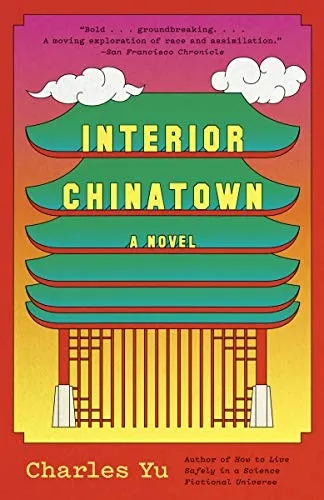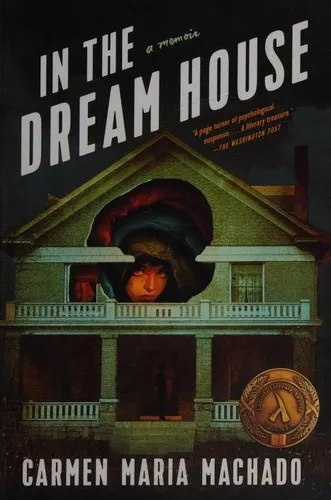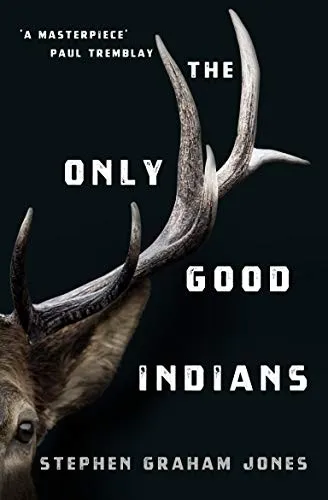Interesting Books You’ve Read Recently
Interior Chinatown, In the Dream House, The Only Good Indians

I recently read a few books which feature the relatively rare technique of second-person narration. This is when the pronoun you is used as a perspective in the writing. Most books are either first-person (“I went to the cobbler’s”) or third-person (“She went to the haberdasher’s”). Therefore, it raises my eyebrows to see the much more uncommon you usage. These three books use this technique for different reasons, and to varying degrees of success, in my opinion.
Interior Chinatown
by Charles Yu

I really wanted to like this book. The protagonist is Willis, the son of immigrants living in a U.S. Chinatown, a setting which is conducive to exactly the kind of cultural-identity soul-searching that I find myself doing more and more often these days. There are passages in this book that hit me right in the heart, e.g.
[Your father] says something you don’t quite follow. You hear it, you catch most of the individual words, and yet somehow—you don’t understand. This gap, always there. Somehow unbridgeable, whether it’s across a wide Pacific gulf of language and culture, or just a simple sentence, father to son, always distance. The texture of everyday actions, simple movements and gestures, is harder than it looks. The great shame of your life that you can’t speak his language, not really, not fluently.
As you can see, the prose is written in the second person. Why? That’s where the book fails for me. What you can’t see in the above quote is that the entire length of the book is typeset in a monospaced font that looks like a screenplay. There are also (some) dialogue sections that are formatted like that, with a character name centred and capitalized above the spoken lines. The conceit is supposed to be, Asian Americans have been portrayed in TV and movies as stock characters, like Old Asian Man, or Kung Fu Guy… but look, we don’t all follow the same script, see?
Unfortunately, I think that the formal flourishes obscure the story and the message. Screenplays are not typically written in the second person anyway, so it feels like the book is clashing with itself stylistically.
More importantly, I spent the first half of the book wondering what exactly Willis even is: is he a character in a TV show, or is he an actor working on a TV show? Peripheral characters die and return, which would indicate a detachment from reality, i.e. they exist within the artifice of a show. However, sometimes the book inserts glimpses of behind-the-scenes filmmaking stuff, like a director giving notes, or the need to audition for parts, making it seem like it is taking place in a real-world production of a show.
By the second half of the book, I guess I could accept that we’re watching characters in a show, who know that they’re in a show. But I consider it a miscalculation of the book that it failed to establish this clearly.
In the Dream House
by Carmen Maria Machado

This memoir covers Machado’s relationship with an abusive girlfriend. The second-person you technique in this case works much better than the above. She splits her recollections into two perspectives: the pronoun I signifies recovery, and moving on after the end of the abusive relationship, while the pronoun you stands for the lived memories of the abuse.
It’s the perfect way to show the dissociation that can happen with trauma. The victim feels like the horrible experiences happened to someone else, and by casting you in that role, it makes the reader intimately experience some pretty harrowing stuff.1
You were not always just a You. I was whole—a symbiotic relationship between my best and worst parts—and then, in one sense of the definition, I was cleaved: a neat lop that took first person—that assured, confident woman, the girl detective, the adventurer—away from second, who was always anxious and vibrating like a too-small breed of dog.
…
I thought you died, but writing this, I’m not sure you did.
Thematically, the book opened my eyes to the realities of abuse in LGBTQ relationships. Machado writes that there’s reluctance in the queer community to discuss this topic because they fear that exposing the flaws of queer people will undermine their continuing fight for equality. But of course, silencing victims of abuse is just as bad as discrimination.
The Only Good Indians
by Stephen Graham Jones

This is a horror novel, so I don’t think I’m spoiling too much to say that there’s a monster haunting the main characters. The cool thing is that the monster gets the you pronoun. I didn’t pull any quotes, so let me try to demonstrate by paraphrasing2. I’m very sorry, Mr. Jones.
Jimmy walks to the haberdasher’s, down the street lined with naked trees. Wet snow covers the ground, and he can feel the cold coming in through the hole in his shoe. Earlier this morning, when he was making a sandwich, he heard a rattling noise coming from the basement. He shrugged it off as the complaining of old pipes, but here, now, he can hear it again, behind him. Here, where there are no pipes, and no sandwiches for breakfast, only the pavement and the sound of wind through the dead branches of the trees. But still, the rattling noise. He spins around, but he doesn’t see you. You’re hiding behind the rusty husk of an abandoned car. Jimmy starts moving again. You’ll catch up to him soon…
Because the you perspective is used sparingly, often popping up after pages and pages of third-person action, it’s jarring every time, and appropriately so. The monster is unnatural and isn’t supposed to be there. By putting the reader into the monster’s viewpoint, it causes this uncomfortable feeling of being inserted into the story instead of just watching it.
Another thing I appreciated about this book was how the nature of the monster ties into Indigenous culture. Without spoiling too much, the monster is haunting the main characters because of something that they did in the past. At first, this misdeed, to me, seemed like no big deal. But it’s much more meaningful in the Blackfoot culture that the characters are from, and the book effectively brings the reader into that space.
Footnotes
-
I’m kind of jealous. I’ve worked with a survivor of sexual assault to write their story, and I came up with another way of capturing the dissociative experience, which in hindsight is so much more clunky than what Machado achieves here. ↩
-
Let this in no way be taken as a comment on the quality of the writing. I’m being lackadaisical here just to show what I mean. I’m not trying to mock Jones’s style or anything; he’s a much better writer than I am. ↩
